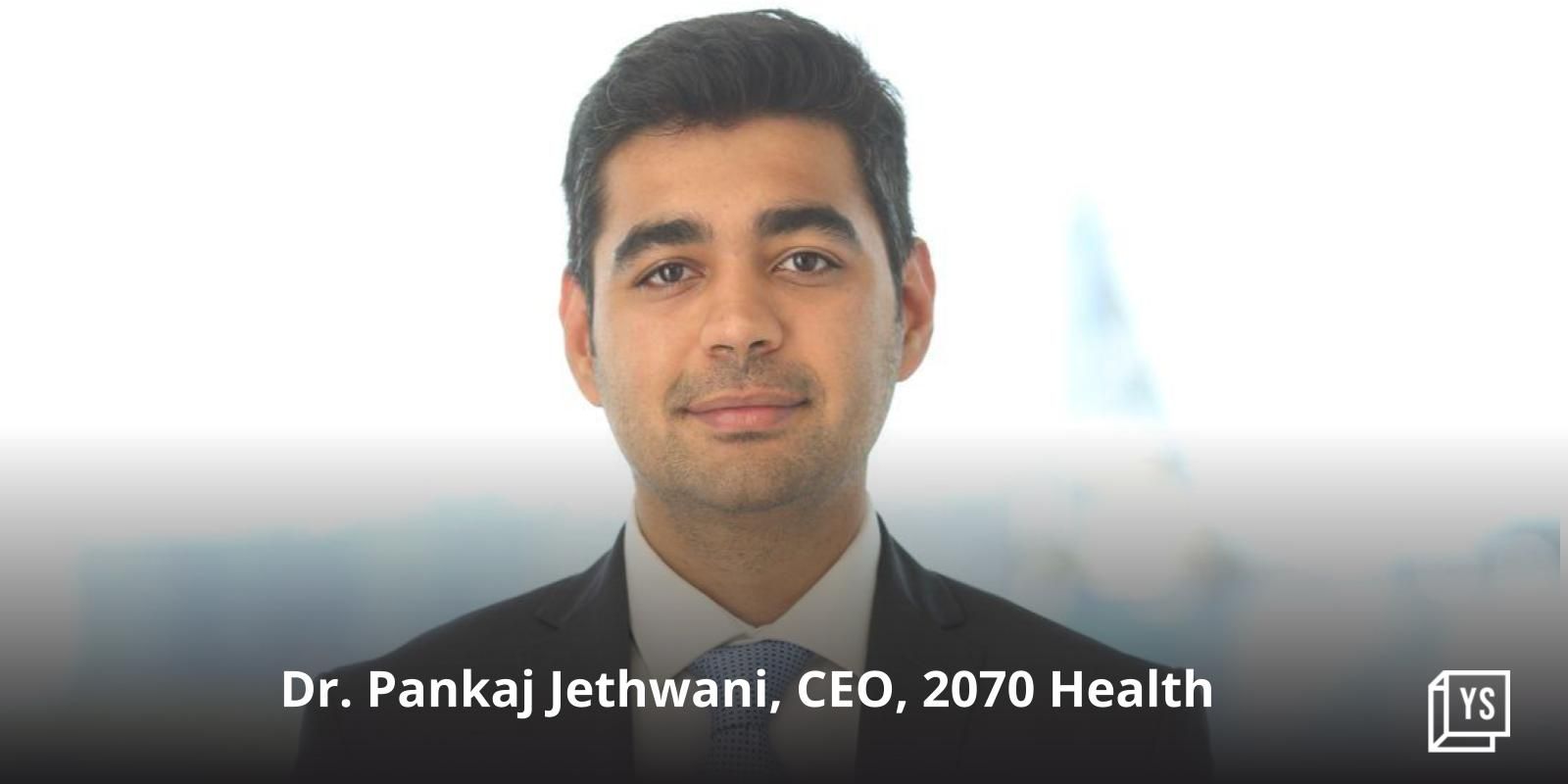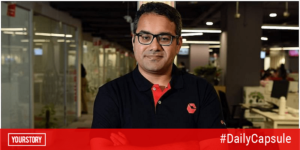
Technology has changed healthcare significantly of late. Concepts like e-pharmacies and teleconsultations—conducting consultations via an app or phone—are no longer alien.
Despite these advances in technology, gaps in areas pain management, pediatrics, oncology, remain.
This led Dr. Pankaj Jethwani (CEO) and Sunil Wadhwani (Chairman) to start a venture studio—a platform to create new healthtech companies—in 2022. It even raised $30 million in funding in June this year from healthcare focused VC fund W Health Venture.
As per Dr. Pankaj, 2070 health has a bottom-up approach to building innovative healthcare ventures from scratch. Once the research into a particular area is complete, the firm looks to match the idea with a founder who could execute the concept.
“Depending on what core skill set we need, we have a persona made in mind and then our talent team starts reaching out to seasoned professionals that we know from our networks have been looking out to start their entrepreneur stint,” he says.
Hunt for the next big thing in healthtech
There is still no healthtech solution that is as ubiquitous as what an Ola, Swiggy, or Flipkart is to Indian consumer-tech, according to Pankaj. For 2070 Health, this as an opportunity.
At the Studio, they are building healthcare companies focused on patient outcomes vs healthtech companies focused on consumers. They have categorized current and potential incubations into three categories, Care Delivery Innovation, Enablers, and B2B SaaS.
<figure class="image embed" contenteditable="false" data-id="523823" data-url="https://images.yourstory.com/cs/2/50c12d609a1911ec9fa62186d8a1a3b1/Imagexbf1-1646898536224.jpg" data-alt="healthtech" data-caption="
” align=”center”>

Setting up a venture studio
The studio breaks down a company creation process into four steps – Ideation, Team building, Launch and Scale.
.thumbnailWrapper
width:6.62rem !important;
.alsoReadTitleImage
min-width: 81px !important;
min-height: 81px !important;
.alsoReadMainTitleText
font-size: 14px !important;
line-height: 20px !important;
.alsoReadHeadText
font-size: 24px !important;
line-height: 20px !important;

“The goal is to deploy capital once an idea is deeply validated and a stellar founding team is in place, and de-risk execution by providing support that founders need in the riskiest early days of venture building,” says Pankaj.
Currently, its venture studio has various teams that research and identify different healthcare problem areas, and upcoming healthcare segments, and develop business models with a focus on commercial viability.
The studio team is constantly looking for unaddressed challenges in Indian healthcare. So far, the venture studio has incubated companies solving for chronic pain, obesity, and healthcare technology and engineering.
It has so far incubated three companies – Elevate Now (India’s first medical obesity management platform), Nivaan (India’s first end-to-end pain management brand) and Reveal Healthtech (Technology and strategy outsourcing for global healthcare systems and startups).
“We are actively working on Pediatrics as the next space for the 4th studio company. Apart from that, we are in early stages of research in spaces such as clinical trials, oncology, and urology,” says Pankaj.
Explaining its process of identifying the problem statement, Pankaj says, “Only after we get data-backed answers post hundreds of hours of stakeholder conversations and experiments, we finalize to build in a space. We kill 90% of our ideas with conviction. The intent is to stage gate the venture building process to reduce startup failure rates.”
“Every company has a different capital requirement based on the business model and runway needed to prove Product Market Fit (PMF). We have committed between $1 million to $3 million in each of the incubations,” says Dr. Pankaj.
“The startups we build at 2070 Health will be either Indian startups building in India for India (such as Elevate Now and Nivaan Care) or building in India for the world (such as Reveal healthtech),”he adds.
2070 invests anywhere between $1 million to $1.5 million at the incubation stage. Depending on the business model, expected fixed costs and operational burn that is unique to each company, it expects the investment amount to last a 12 month runway. The remaining $1-$1.5 million will be reserved for follow on commitments in these companies.
The studio gets much of its value from the upside it receives as a result of ownership in the companies it has incubated.
“The upside will be realized at the time of exit through secondary sale, strategic stake sale or IPO in 5-7 years,” he says.
The studio aims to build 12-15 companies over the next 5 years.




![Read more about the article [Budget 2022] Centre bats for digitisation of agriculture sector, launches agritech fund](https://blog.digitalsevaa.com/wp-content/uploads/2022/02/Featureimages-newdeck26-1643696907331-300x150.png)





